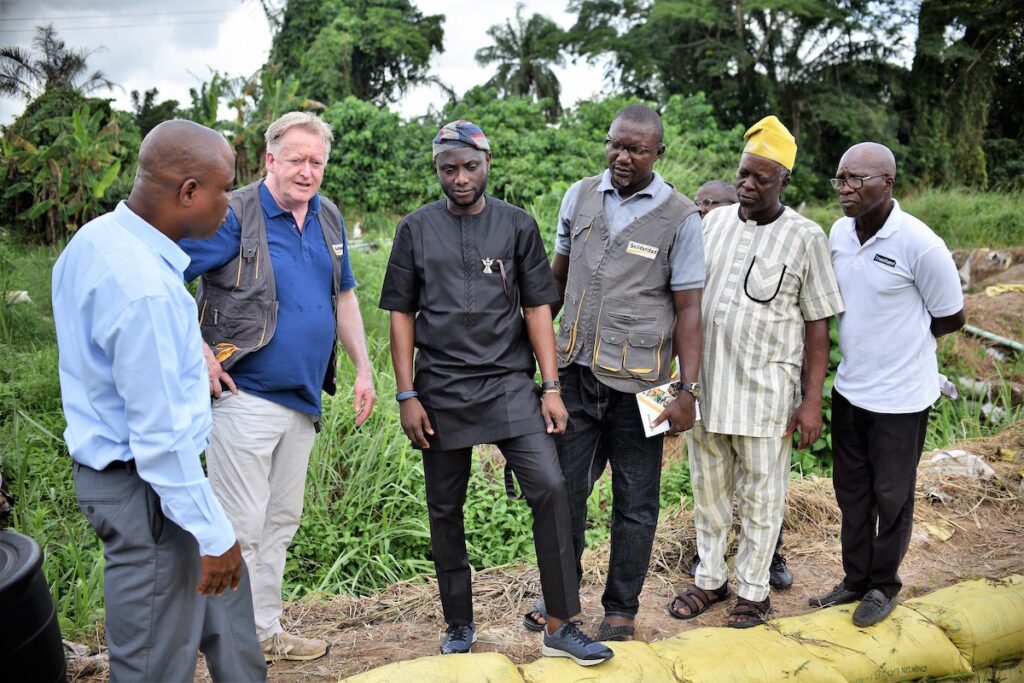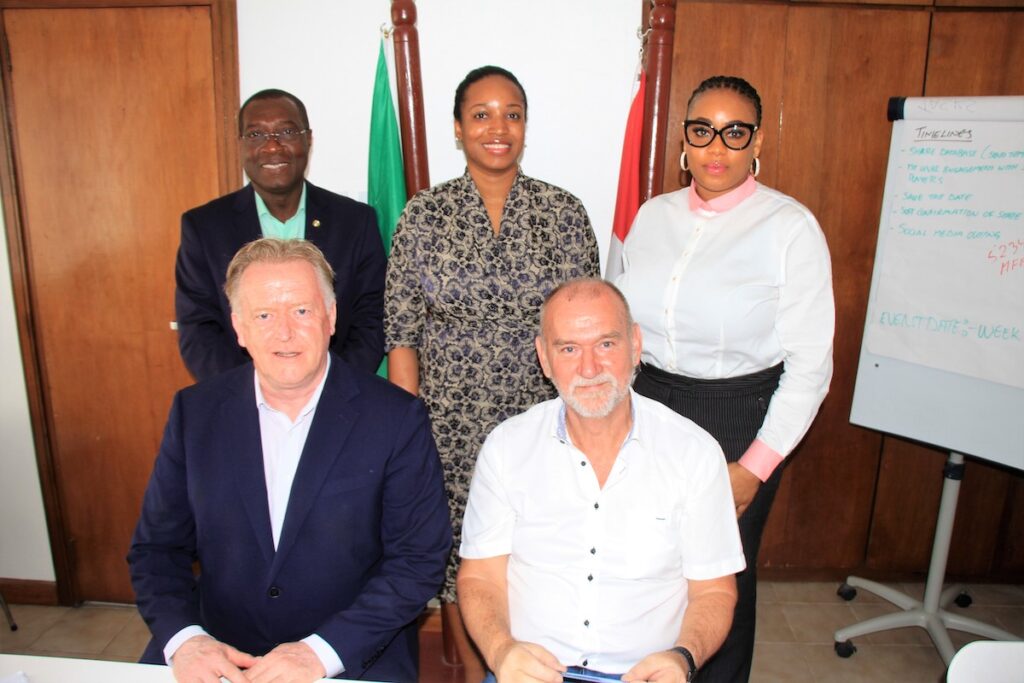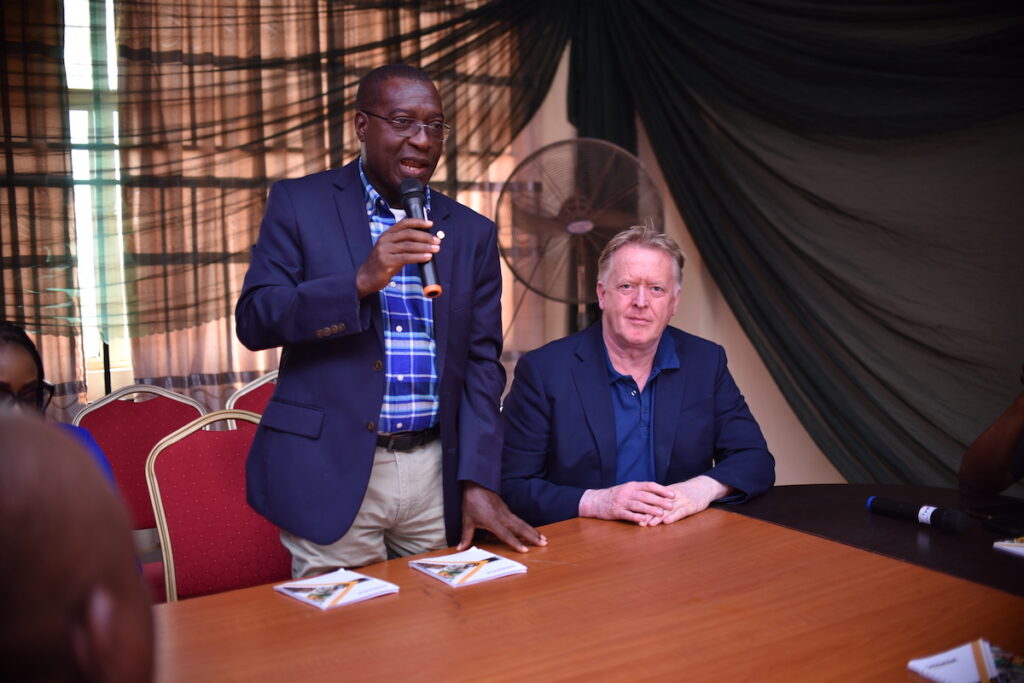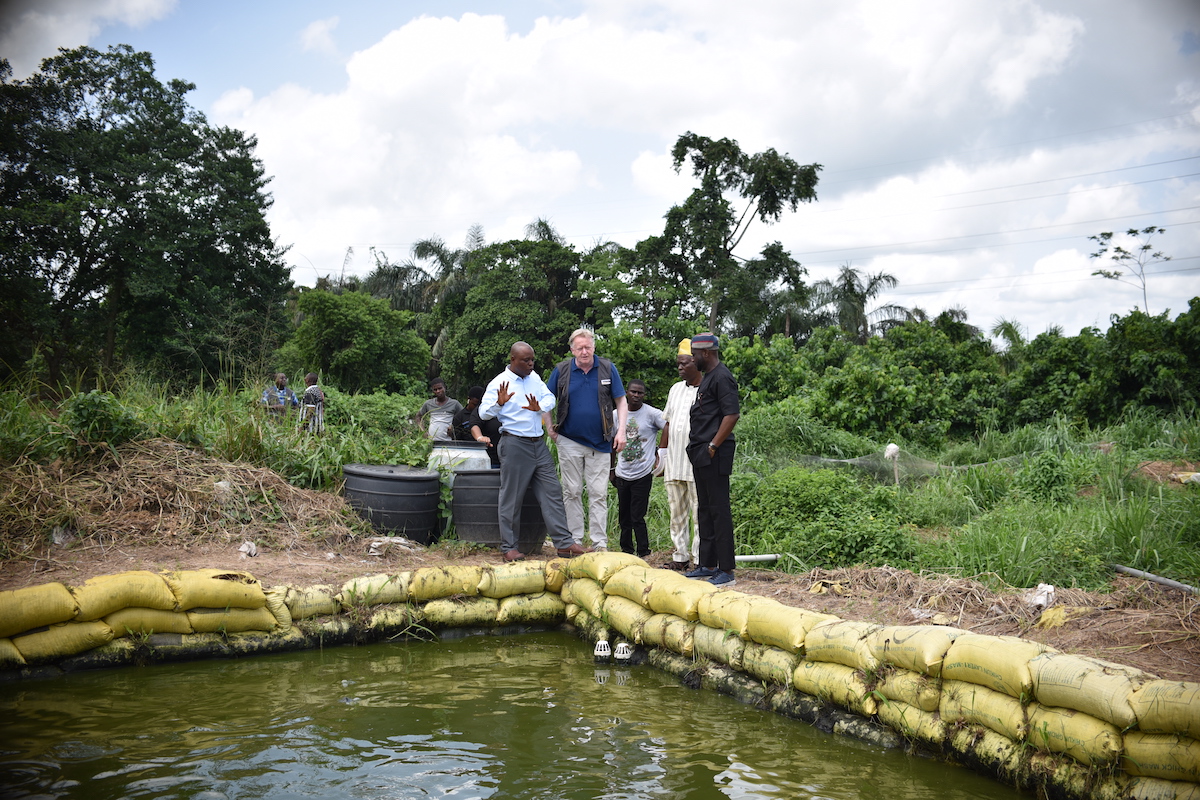The duo, together with the Solidaridad team in Nigeria, visited the two project sites, including the Eriwe fish farm village and the Sikiru Adetona College of Education, Science and Technology (SACOETEC) in the Ogun State of Nigeria. They also paid courtesy calls on the Ijebu Development Initiatives on Poverty Reduction (IDIPR), Aller Aqua Nigeria and the Consulate General of Denmark.
The partners worked to align their efforts by redirecting project implementation towards achieving the Danish business strategy, which seeks to fight and prevent poverty and inequality, contribute to reduced conflict, displacement and irregular migration, and strengthen resilience towards climate change. The project builds the capacity of smallholder fish farmers in climate-smart practices, enhances the vocational skills of students in aquaculture, promotes agri-business in beneficiary communities, and introduces new technologies to fish farmers and others.

We have known Solidaridad for its commitment to project delivery. We are confident that the ADPN will not be an exception. I believe Solidaridad will ensure its success for the benefit of the smallholder fish farmers in the country. We are committed to supporting Solidaridad to achieve the desired results.
Per Christensen, Consul General at the Consulate General of Denmark
At the Sikiru Adetona College of Education, Science and Technology (SACOETEC), where aquaculture has been incorporated into the school’s curriculum, the team met with the provost of the college and some staff. Jeroen commended the efforts to build the entrepreneurial skills of the students in aquaculture.
“I am happy with the strong focus on the vocational training of the students, who are the leaders of tomorrow. Solidaridad’s partnership with the college is a significant step in the right direction towards building a sustainable food production system for a secured future,” Douglas said.
Dr Adeola Lukmon, the provost of SACOETEC, said the initiative was not only benefiting students, but turning communities around the college into a fish production hub in Nigeria.
We appreciate the importance of the intervention to our students and the school community as a whole. Our aim is to equip students with the right skills to become self-employed entrepreneurs after graduating.
Dr Adeola Lukmon, the provost of SACOETEC
The team also engaged with leaders of the Ijebu-Ode Development Initiatives on Poverty Reduction (IDIPR) and project participants at the Eriwe fish farm village. These engagements enabled them to assess the impact of the project and analyze the challenges and potential areas for further support to improve the livelihoods of smallholder fish farmers. The Eriwe fish farm village houses 4,000 earthen fish ponds and 1,300 farmers.

“With the support these farmers have received so far under the project, this fish farm village has the potential to contribute significantly to a reduction in fish imports, which costs the country 50 billion naira annually,” Douglas said.
Lasisi Nurudeen Abiodun, the Managing Director of Aller Aqua Nigeria, the Danish commercial partner of the project, commended Solidaridad for ensuring effective collaboration between partners of the Aquaculture Development Project Nigeria (ADPN).
“The project has chalked up some successes, but more needs to be achieved. Aller Aqua will work closely with Solidaridad to ensure a much more strategic level re-alignment to inform the achievement of yet-to-be-met deliverables,” Abiodun said.

Isaac Gyamfi, Regional Director for Solidaridad West Africa, assured all the stakeholders that Solidaridad will leverage its experiences of over five decades in the sustainable value chain to ensure the success of the Aquaculture Development Project Nigeria.
“The engagement did not only strengthen partnerships but also spurred the partners to further commit to work together to ensure smallholder fish farmers produce in balance with nature, and increase their income, while promoting inclusivity in the sector,” Isaac remarked
The Aquaculture Development Project Nigeria is implemented in partnership with Aller Aqua, Aquamind, OxyGuard International, Sikiru Adetona College of Education, Science and Technology (SACOETEC), and the Ijebu Development Initiatives on Poverty Reduction (IDIPR) with funding from Danida Market Development Partnerships.

